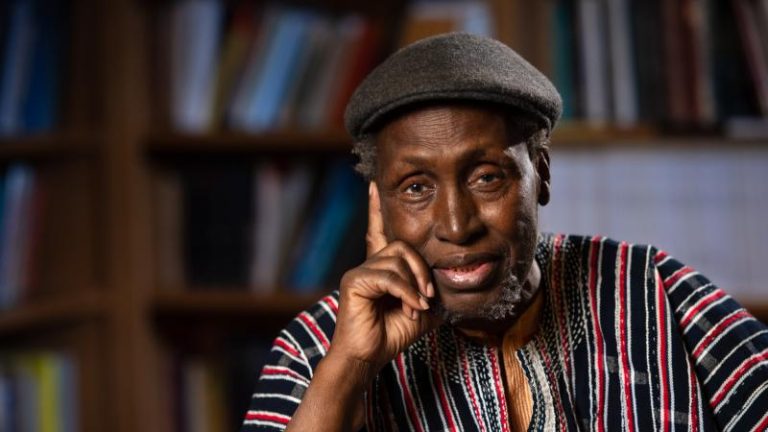The world is mourning the loss of celebrated Kenyan author, playwright, and academic Ngũgĩ wa Thiong’o, who passed away on Wednesday morning, 28th May 2025, at the age of 87. The news was confirmed by his family in a heartfelt statement released by his daughter, Wanjiku wa Ngugi.
“It is with a heavy heart that we announce the passing of our dad, Ngũgĩ wa Thiong’o,” the statement read. “He lived a full life, fought a good fight. As was his last wish, let’s celebrate his life and his work. Rîa ratha na rîa thûa. Tûrî aira!”
Tributes have poured in from around the globe, reflecting the profound impact of Ngũgĩ’s work on generations of readers, scholars, and activists.
Homa Bay Governor Gladys Wanga expressed her condolences via X (formerly Twitter), stating:
“Sad to learn of the passing on of a literary giant whose words shaped African thought and inspired generations. Prof. Ngũgĩ wa Thiong’o’s works challenged oppression and celebrated the power of indigenous voices with courage, globally advocating for African languages.”
Another user, Peter Gathunuku, recalled his introduction to Ngũgĩ’s writing, posting:
“Kenya and indeed Africa can never thank you enough for all your work. My first encounter was the classic Ngahīka Ndēenda. RIP Ngũgĩ wa Thiong’o.”
The advocacy group Kongamano la Mapinduzi wrote:
“Through Prof. Ngũgĩ wa Thiong’o’s words, he gave voice to the oppressed.”
A Literary and Political Giant
Born in 1938 in Kamirithu, Kiambu County, Ngũgĩ wa Thiong’o rose from humble beginnings to become a towering figure in world literature. His early novels, including Weep Not, Child, The River Between, Petals of Blood, and Devil on the Cross, are widely taught in schools and universities, both in Africa and abroad.
But Ngũgĩ was more than a writer, he was a revolutionary thinker and activist. A vocal critic of neo-colonialism and cultural imperialism, he was imprisoned without trial in 1977 for his political theatre work and later forced into exile. He eventually settled in the United States, where he continued to teach and write, becoming a long-serving professor at prestigious institutions such as Yale University and the University of California, Irvine.
Perhaps most famously, Ngũgĩ made the radical decision in the late 1970s to stop writing in English, choosing instead to write in Gikuyu, his mother tongue. This act of linguistic defiance challenged the dominance of colonial languages in African literature and inspired a movement to embrace indigenous languages as vessels of knowledge and resistance.
An Enduring Legacy
Over the course of his career, Ngũgĩ authored dozens of novels, plays, essays, and memoirs, including his powerful autobiographical works Dreams in a Time of War and Birth of a Dream Weaver. His intellectual contributions spanned literature, post-colonial theory, language politics, and education.
To many, he was not just a writer but a cultural warrior, a voice for the voiceless, a defender of African identity, and a lifelong champion of the continent’s right to define itself on its own terms.
Ngũgĩ wa Thiong’o leaves behind a monumental legacy, both on the page and in the hearts of millions. As his family and admirers around the world mourn his passing, they also celebrate a life lived with unwavering purpose and immense literary brilliance.



